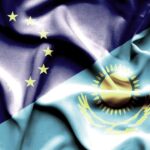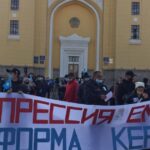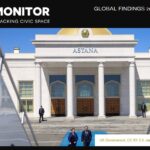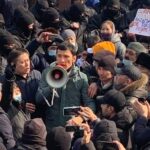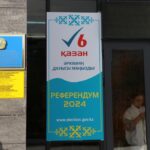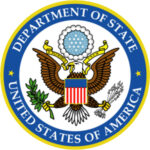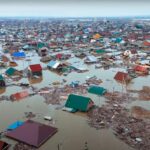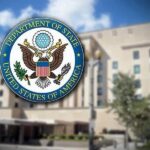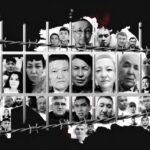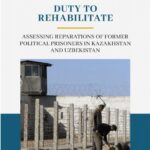There was no improvement in investigating reports of human rights violations by law enforcement and security services and holding alleged perpetrators to account. Bureaucratic obstacles and opaque internal ministerial regulations prevented victims of torture and their relatives from obtaining justice. Similar obstacles continued to hinder effective independent monitoring of places of detention. The right to freedom of assembly continued to be restricted. Civil society activists feared that new legislative proposals would restrict their freedoms of expression and association.
Torture and other ill-treatment
The authorities repeatedly asserted their commitment to eliminating torture and other ill-treatment. In September 2013, the Prosecutor General instructed national prosecutors to “open a criminal investigation into every incident of torture”. However, in practice investigations into allegations of torture and other ill-treatment fell far short of international standards and failed to deliver justice.
In November the UN Committee against Torture expressed concern at “the gap between legislation and protection from torture”, noting that the use of torture and other ill-treatment to obtain confessions “went beyond isolated incidents”, and that less than 2% of complaints of torture led to prosecution. In October, at Kazakhstan’s second round Universal Periodic Review, the UN Human Rights Council recommended that Kazakhstan establish an independent investigations mechanism.
The Criminal Procedural Code provides that an official body should not investigate complaints against its own officials. However, complaints of torture and other ill-treatment made against law enforcement and national security officials were routinely referred to the internal investigations departments of the Ministry of Internal Affairs, Financial Police or the Committee for National Security (KNB). These internal investigation departments are governed by internal regulations, which have not been made public. In practice this meant that instead of an impartial investigation by a separate authority, torture complaints were put through an internal screening process, which usually failed to check them objectively. In most cases, screening procedures concluded that complaints were unfounded or that the perpetrators could not be identified.
Independent NGOs registered between 350 and 400 complaints of torture and other ill-treatment in Kazakhstan annually in 2013 and 2014. However, they estimated that since 2010 the authorities had succeeded in bringing only some 50 officials to justice. According to the website of the Office of the Prosecutor General, only 43 crimes of torture were registered from January to September, with 47 individuals identified as alleged victims, including 11 prisoners, three minors and one elderly person. During the same period, 17 torture-related cases went on trial and 30 cases were closed because of the “ absence of elements of a crime”, official language typically used after inadequate internal investigations. The website also stated that in 2013 and the first half of 2014, 31 police officers were convicted of torture-related crimes, but did not specify the nature of the crimes committed, nor the number of incidents these related to.
In November 2013, Kostanai Regional Court awarded 2 million Kazakhstani Tenge (US$13,000) in compensation to Aleksandr Gerasimov following a decision by the UN Committee against Torture in May 2012, which found Kazakhstan responsible for his torture. However, the authorities had yet to carry out a full and independent investigation into Aleksandr Gerasimov’s torture complaint.
In November, Roza Tuletaeva, a labour rights activist, was released from prison on parole. She had been serving a five-year sentence for “inciting social discord” during the 2011 oil workers’ strike in Zhanaozen. At her trial in 2012 she told the court that she had been tortured during interrogations. There was no information of any impartial investigations into her allegations of torture.
Counter-terror and security
The authorities continued to invoke countering terrorism and other threats to national security as crucial to securing national and regional stability. There were frequent reports of KNB officers violating human rights, including using torture and other ill-treatment to obtain confessions.
Among those particularly targeted by the KNB were members or presumed members of banned or unregistered Islamic groups and Islamist parties; members of religious minorities; and asylum-seekers from neighbouring countries, particularly China and Uzbekistan.
Relatives of some of those convicted of terrorism-related offences claimed that prisoners in Shymkent and Arkalyk high security prisons were serving their sentences in cruel, inhuman and degrading conditions. Only limited independent monitoring access was allowed at these facilities.
In January 2013, legislation was introduced which provided for broader measures in countering terrorism and extremism, and the newly adopted Criminal Code, signed by President Nazarbayev on 3 July 2014 and expected to come into force in January 2015, lowered the age of criminal liability for terrorism-related offences to 14 years. The crime of “terrorism with loss of life”, in Article 49.1 of the Criminal Code, was the only crime still punishable by death although Kazakhstan remained abolitionist in practice.
Prison conditions
In 2013 Kazakhstan adopted legislation to set up a National Preventive Mechanism (NPM). Its civil society members were elected on 19 February 2014 at the first session of the NPM Coordination Council, after which they began monitoring detention facilities across Kazakhstan. However, the NPM mandate did not extend to all places of deprivation of liberty. For example, the monitoring group was not permitted to inspect offices of police departments and had no access to other closed state institutions such as orphanages, nursing homes and military barracks. The NPM also faced bureaucratic obstacles: in order to undertake an urgent and unplanned visit, NPM members had to obtain written permission from the Ombudsman, which could only be obtained during working hours, thus restricting the NPM’s ability to respond rapidly to reports of torture. The NPM was also not allowed to publish the results of its findings until the Ombudsman had approved its annual report.
Freedom of assembly
Freedom of assembly was restricted and peaceful protesters continued to be detained and fined. Activists were required to obtain prior permission from the local authorities for any public gathering or single-person picket. Distributing leaflets, joining spontaneous protests or wearing clothing displaying political slogans without prior permission were often regarded as violations of legislation on public protests. In several incidents law enforcement officials used force to break up unauthorized peaceful meetings. In dozens of cases, organizers and participants were fined or sentenced to administrative detention for up to 15 days.
Freedom of association
NGO registration was compulsory. Authorities enjoyed wide discretion to deny such status and to close down groups for alleged, often minor, violations of the law. The new Criminal Code and other related laws contained provisions that human rights groups believed could be used to harass NGOs and their members, and to restrict their legitimate activities.
The new Criminal Code classified “leading, participating in or financing unregistered or banned associations” as criminal offences. It also criminalized “unlawful interference” in the activities of state agencies by members of public associations and defined leaders of public associations as a separate category of offenders, providing for stiffer penalties for them for a number of crimes.
A working group set up by the Ministry of Culture was drafting a law regulating NGO activities that would establish legal grounds for channelling all state and non-state funding for NGOs through a special NGO set up by the government. NGOs were concerned this might limit their opportunities for independent fundraising.
Freedom of expression – media
Freedom of expression significantly deteriorated for independent media. In February, Pravdivaya Gazeta newspaper was closed down under a court ruling for minor transgressions. Social media and blogs were often restricted and internet-based resources were blocked by court decisions taken in closed proceedings, due to their supposedly extremist or otherwise illegal content.

